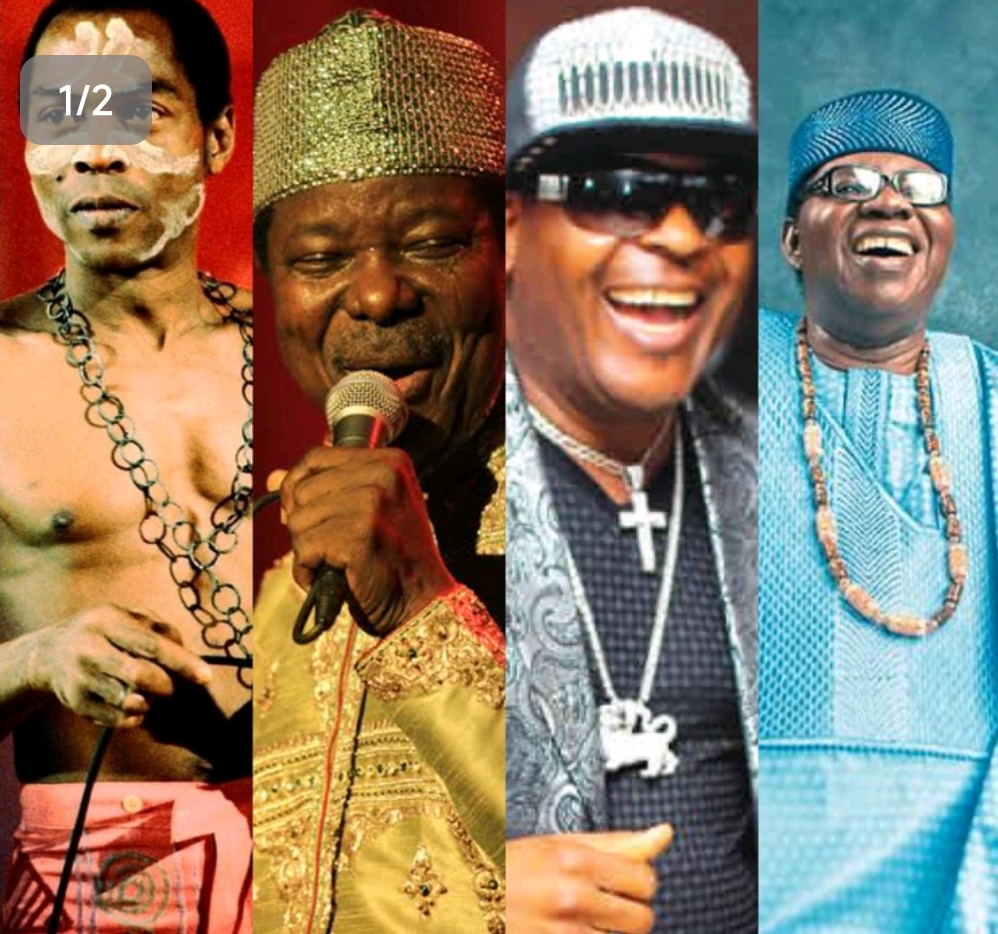Fun Fact!
Fela Anikulapo Kuti, King Sunny Adé, Shina Peters, and Ebenezer Obey didn’t have the chance to utilize the popular streaming services we use today, such as YouTube (launched in 2005), iTunes (2003), Audiomack (2012), Apple Music (2015), Spotify (2006), Deezer (2007), SoundCloud (2007), and Amazon Music (2007).
These legendary artists are the pioneers and founding fathers of the Nigerian music industry.
They achieved global recognition and respect without the aid of major streaming platforms, paving the way for future generations.
GOATs forever 🐐🐐Put some respect on their names‼️Fela Anikulapo Kuti, also known as Abami Eda, was a Nigerian musician, bandleader, composer, political activist, and Pan-Africanist.
He is widely recognized as the King of Afrobeat, a music genre that combines West African music with African-American funk and jazz.
Fela became famous in Nigeria during the 1970s with his band Africa ’70, led by drummer Tony Allen.
He was known for his challenging and charismatic performances and was considered a significant musical and sociopolitical voice globally.
Fela was the son of Funmilayo Ransome-Kuti, a prominent women’s rights activist in Nigeria. He was critical of Nigeria’s military juntas and often faced their backlash. In 1970, he established the Kalakuta Republic, a commune that declared independence from military rule.
The commune was destroyed in a 1978 raid, resulting in injuries to Fela and his mother. In 1984, he was imprisoned by the government but was released after 20 months.
Despite the challenges, Fela continued to create music and perform until his death in 1997. His son Femi Kuti has preserved his legacy by overseeing reissues and compilations of his music.King Sunny Adé is a Nigerian jùjú singer, songwriter, and multi-instrumentalist who achieved international success in the music industry.
He formed the African Beats in 1967 and gained national and international acclaim with albums like “Juju Music” and “Synchro System.” King Sunny Adé is highly influential in music history and is recognized as one of the first African pop musicians to achieve global recognition.
He is also involved in supporting young musicians through the King Sunny Adé Foundation and chairs the Musical Copyright Society of Nigeria.
Ebenezer Obey is another notable Nigerian jùjú musician who blended highlife and jùjú music in his career.
He gained fame in the mid-1950s and achieved numerous hits on the West African Decca label. Obey is known for incorporating Yoruba proverbs into his music and praising wealthy Nigerian socialites and business tycoons.
In the early 1990s, he transitioned into gospel music and has collaborated with Pastor Kunle Ajayi.
Sir Shina Peters, also a jùjú musician, started his music career with various groups before forming his band, Sir Shina Peters & His International Stars.
His album “Ace (Afro-Juju Series 1)” was a breakthrough success, fusing jùjú and Afrobeat elements.
Peters has released multiple albums and is known for his energetic performances and unique musical style.










